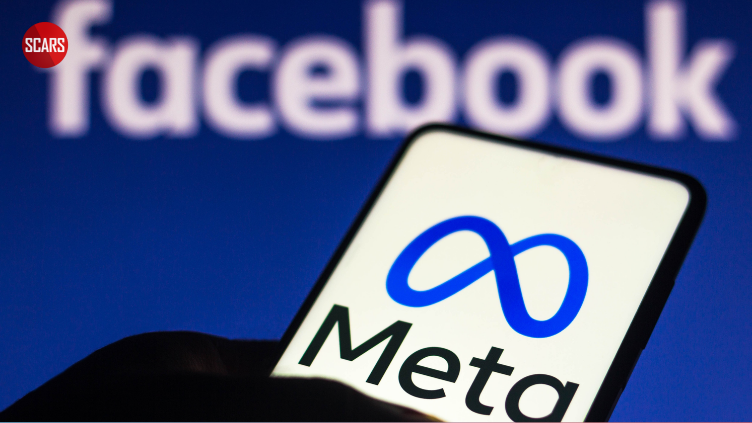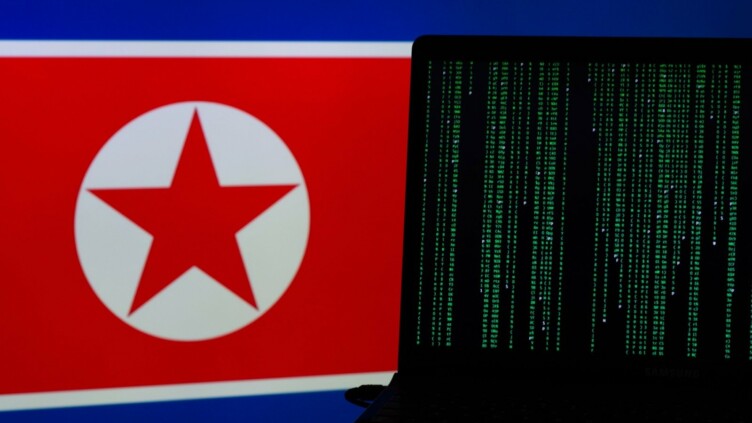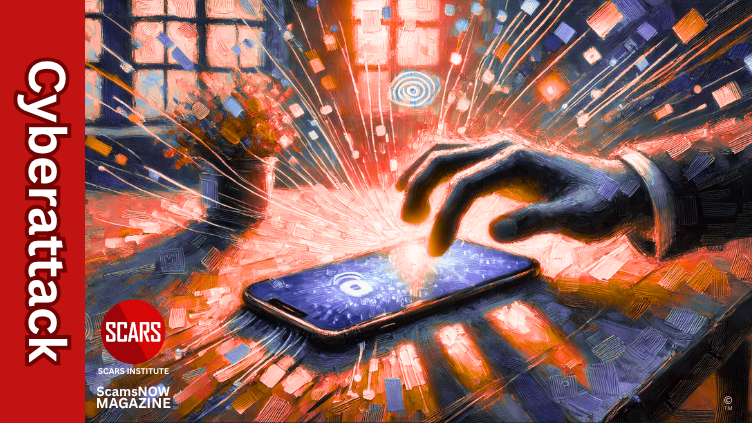North Korean Cyberespionage Inside KnowBe4 Company – A Massive Wake-Up Call For Cybersecurity Industry
How a North Korean Agent Infiltrated KnowBe4
Primary Category: Cybersecurity
Authors:
• SCARS Editorial Team – Society of Citizens Against Relationship Scams Inc.
• Portions KnowBe4 and other sources
About This Article
KnowBe4 recently uncovered that a newly hired remote software engineer, who passed both interview and background checks, was actually a North Korean agent.
The discovery was made after suspicious activity linked to a company-issued MacBook raised red flags. The company’s IT and security teams acted quickly, restricting access and launching an investigation. They found that the individual had loaded malware onto the device and used a single-board computer to manipulate data.
KnowBe4 collaborated with the FBI and Mandiant, concluding that the worker was part of a North Korean operation posing as IT staff to infiltrate American companies.
The incident highlights the importance of continuous monitoring and robust security measures, even post-hiring, to safeguard against internal threats.

Incident at KnowBe4: The Unexpected Discovery of a North Korea Agent on the Payroll
KnowBe4, a leading provider of security awareness training and simulated phishing platform, recently experienced a surprising incident involving a newly hired remote software engineer. The company, known for its work in educating organizations about cybersecurity threats, discovered an anomaly after onboarding the employee, despite the individual having passed both the interview and background check processes.
The Onboarding Process
The new hire was brought on board as a remote software engineer, a common practice in the tech industry that has become even more prevalent in recent years. As part of their standard procedure, KnowBe4 sent the employee a company-issued MacBook to ensure they had the necessary tools to perform their job duties securely. This equipment provisioning step is critical for maintaining a secure working environment, especially for remote workers who may not have access to the company’s internal networks.
Discovery of the Anomaly
Shortly after sending the MacBook, KnowBe4’s IT and security teams noticed unusual activity linked to the device. This discovery prompted a more thorough investigation into the circumstances surrounding the new hire. According to internal sources, the activity raised red flags due to its unusual nature, inconsistent with standard practices expected from new employees.
In a statement, KnowBe4’s CEO, Stu Sjouwerman, emphasized the importance of vigilance even after hiring processes are complete. “Our commitment to security doesn’t end with the hiring process. We continuously monitor all aspects of our operations to ensure the highest level of security, especially in our own backyard,” Sjouwerman said.
Actions Taken by KnowBe4
An internal investigation started when KnowBe4’s InfoSec Security Operations Center team detected “a series of suspicious activities” from the new hire. The remote worker was sent an Apple laptop, which was flagged by the company on July 15 when malware was loaded onto the machine. The AI-filtered photo, meanwhile, was flagged by the company’s Endpoint Detection and Response software.
Later that evening, the SOC team had “contained” the fake worker’s systems after he stopped responding to outreach. During a roughly 25-minute period, “the attacker performed various actions to manipulate session history files, transfer potentially harmful files, and execute unauthorized software,” Sjouwerman wrote in the post. “He used a [single-board computer] raspberry pi to download the malware.”
From there, the company shared its data and findings with the FBI and with Mandiant, the Google-owned cyber firm, and came to the conclusion that the worker was a fictional persona operating from North Korea.
KnowBe4 said the fake employee likely had his workstation connected “to an address that is basically an ‘IT mule laptop farm.’” They’d then use a VPN to work the night shift from where they actually reside — in this case, North Korea “or over the border in China.” That work would take place overnight, making it appear that they’re logged on during normal U.S. business hours.
Upon discovering the suspicious activity, KnowBe4 acted swiftly to mitigate any potential threats. The company immediately restricted the new employee’s access to internal systems and launched a comprehensive review of the incident. The employee was placed on administrative leave pending further investigation.
“We take any potential security breach very seriously, regardless of the source. Our protocols are designed to detect and respond to any anomalies quickly and efficiently,” Sjouwerman added.
Implications and Lessons Learned
According to Bleeping Computer
The firm detected and stopped the malicious actions in time, so no data breach occurred. However, the case highlights the continued threat posed by North Korean threat actors posing as IT staff, something that the FBI has warned about repeatedly since 2023.
The DPRK maintains a highly organized army of IT workers who obscure their true identities to get hired by hundreds of American firms.
Revenue generated by these workers are used to fund the country’s weapons programs and cyber operations, as well as to collect intelligence.
This incident underscores the importance of not only thorough vetting during the hiring process but also maintaining robust security measures post-hiring. KnowBe4, with its expertise in cybersecurity training, is in a unique position to highlight the potential vulnerabilities that can arise even from trusted internal sources.
KnowBe4’s response to the incident demonstrates the company’s commitment to its mission of enhancing security awareness and maintaining a secure environment for its operations and clients. The company is conducting a thorough review to determine if any sensitive information was accessed or compromised.
The incident also serves as a reminder to other organizations of the critical need for continuous monitoring and the importance of having protocols in place to quickly identify and address any unusual activity.
Conclusion
While the incident at KnowBe4 is still under investigation, it highlights the evolving nature of cybersecurity threats and the necessity for comprehensive security measures. Companies must remain vigilant not only against external threats but also potential risks from within. KnowBe4’s quick action in response to the anomaly reflects best practices in incident response and underscores the company’s role as a leader in cybersecurity education and awareness.
Sources:
-/ 30 /-
What do you think about this?
Please share your thoughts in a comment below!
-/ 30 /-
What do you think about this?
Please share your thoughts in a comment below!
SCARS LINKS: AgainstScams.org RomanceScamsNOW.com ContraEstafas.org ScammerPhotos.com Anyscam.com ScamsNOW.com
reporting.AgainstScams.org support.AgainstScams.org membership.AgainstScams.org donate.AgainstScams.org shop.AgainstScams.org
youtube.AgainstScams.org linkedin.AgainstScams.org facebook.AgainstScams.org
Important Information for New Scam Victims
- Please visit www.ScamVictimsSupport.org – a SCARS Website for New Scam Victims & Sextortion Victims.
- SCARS Institute now offers its free, safe, and private Scam Survivor’s Support Community at www.SCARScommunity.org – this is not on a social media platform, it is our own safe & secure platform created by the SCARS Institute especially for scam victims & survivors.
- SCARS Institute now offers a free recovery learning program at www.SCARSeducation.org.
- Please visit www.ScamPsychology.org – to more fully understand the psychological concepts involved in scams and scam victim recovery.
If you are looking for local trauma counselors, please visit counseling.AgainstScams.org
If you need to speak with someone now, you can dial 988 or find phone numbers for crisis hotlines all around the world here: www.opencounseling.com/suicide-hotlines
Statement About Victim Blaming
Some of our articles discuss various aspects of victims. This is both about better understanding victims (the science of victimology) and their behaviors and psychology. This helps us to educate victims/survivors about why these crimes happened and not to blame themselves, better develop recovery programs, and help victims avoid scams in the future. At times, this may sound like blaming the victim, but it does not blame scam victims; we are simply explaining the hows and whys of the experience victims have.
These articles, about the Psychology of Scams or Victim Psychology – meaning that all humans have psychological or cognitive characteristics in common that can either be exploited or work against us – help us all to understand the unique challenges victims face before, during, and after scams, fraud, or cybercrimes. These sometimes talk about some of the vulnerabilities the scammers exploit. Victims rarely have control of them or are even aware of them, until something like a scam happens, and then they can learn how their mind works and how to overcome these mechanisms.
Articles like these help victims and others understand these processes and how to help prevent them from being exploited again or to help them recover more easily by understanding their post-scam behaviors. Learn more about the Psychology of Scams at www.ScamPsychology.org
SCARS INSTITUTE RESOURCES:
If You Have Been Victimized By A Scam Or Cybercrime
♦ If you are a victim of scams, go to www.ScamVictimsSupport.org for real knowledge and help
♦ SCARS Institute now offers its free, safe, and private Scam Survivor’s Support Community at www.SCARScommunity.org/register – this is not on a social media platform, it is our own safe & secure platform created by the SCARS Institute especially for scam victims & survivors.
♦ Enroll in SCARS Scam Survivor’s School now at www.SCARSeducation.org
♦ To report criminals, visit https://reporting.AgainstScams.org – we will NEVER give your data to money recovery companies like some do!
♦ Follow us and find our podcasts, webinars, and helpful videos on YouTube: https://www.youtube.com/@RomancescamsNowcom
♦ Learn about the Psychology of Scams at www.ScamPsychology.org
♦ Dig deeper into the reality of scams, fraud, and cybercrime at www.ScamsNOW.com and www.RomanceScamsNOW.com
♦ Scam Survivor’s Stories: www.ScamSurvivorStories.org
♦ For Scam Victim Advocates visit www.ScamVictimsAdvocates.org
♦ See more scammer photos on www.ScammerPhotos.com
You can also find the SCARS Institute’s knowledge and information on Facebook, Instagram, X, LinkedIn, and TruthSocial
Psychology Disclaimer:
All articles about psychology and the human brain on this website are for information & education only
The information provided in this and other SCARS articles are intended for educational and self-help purposes only and should not be construed as a substitute for professional therapy or counseling.
Note about Mindfulness: Mindfulness practices have the potential to create psychological distress for some individuals. Please consult a mental health professional or experienced meditation instructor for guidance should you encounter difficulties.
While any self-help techniques outlined herein may be beneficial for scam victims seeking to recover from their experience and move towards recovery, it is important to consult with a qualified mental health professional before initiating any course of action. Each individual’s experience and needs are unique, and what works for one person may not be suitable for another.
Additionally, any approach may not be appropriate for individuals with certain pre-existing mental health conditions or trauma histories. It is advisable to seek guidance from a licensed therapist or counselor who can provide personalized support, guidance, and treatment tailored to your specific needs.
If you are experiencing significant distress or emotional difficulties related to a scam or other traumatic event, please consult your doctor or mental health provider for appropriate care and support.
Also read our SCARS Institute Statement about Professional Care for Scam Victims – click here
If you are in crisis, feeling desperate, or in despair, please call 988 or your local crisis hotline – international numbers here.
More ScamsNOW.com Articles
A Question of Trust
At the SCARS Institute, we invite you to do your own research on the topics we speak about and publish. Our team investigates the subject being discussed, especially when it comes to understanding the scam victims-survivors’ experience. You can do Google searches, but in many cases, you will have to wade through scientific papers and studies. However, remember that biases and perspectives matter and influence the outcome. Regardless, we encourage you to explore these topics as thoroughly as you can for your own awareness.















![NavyLogo@4x-81[1] North Korean Cyberespionage Inside KnowBe4 Company - A Massive Wake Up Call For Cybersecurity Industry- 2024](https://scamsnow.com/wp-content/uploads/2025/04/NavyLogo@4x-811.png)









![scars-institute[1] North Korean Cyberespionage Inside KnowBe4 Company - A Massive Wake Up Call For Cybersecurity Industry- 2024](https://scamsnow.com/wp-content/uploads/2025/04/scars-institute1.png)

![niprc1.png1_-150×1501-1[1] North Korean Cyberespionage Inside KnowBe4 Company - A Massive Wake Up Call For Cybersecurity Industry- 2024](https://scamsnow.com/wp-content/uploads/2025/04/niprc1.png1_-150x1501-11.webp)